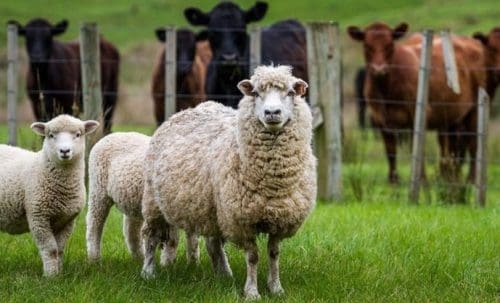
THE Zero Net Emissions Agricultural Cooperative Research Centre is being established to help the $70-billion sector reduce its carbon footprint.
The ZNE-Ag CRC is kicking off with four research programs:
- Low-emissions plant solutions for broadacre and horticultural systems which also reduce emissions from livestock via the delivery of anti-methanogenic plant properties and mixed-species pastures;
- Towards methane-free cattle and sheep;
- Whole farm and mixed enterprise systems analysis;
- Delivering value from net zero.
The collaboration includes 16 major industry groups, all six state governments and the Northern Territory, 10 universities, three indigenous organisations, and grower groups and businesses.
The initiative is funded by the Federal Government and was brokered by The University of Queensland and the Qld Department of Agriculture and Fisheries.
It involves a consortium of 73 partners across industry, education and government.
ZNE-Ag CRC chair Debra Cousins said the national collaboration has secured $300 million in funding over 10 years, with the Federal Government’s contribution of $87M making it the largest CRC in the program’s history.
“There’s an economic imperative if we want Australian agriculture to be valued at $100B by 2030,” Dr Cousins said, adding that the CRC will develop technologies and solutions to reduce emissions in agriculture.
Queensland Alliance for Agriculture and Food Innovation director Matthew Morell said reducing emissions across Australian agriculture was a significant challenge given the diversity of agricultural products, and the need for new technology.
“Time is of the essence if we are to hit our 2030 and 2050 targets,” Professor Morell said.
According to ZNE-Ag CRC, agriculture is responsible for 14 percent of Australia’s national emissions, apportioned 77pc to methane from livestock, 19pc to nitrous oxide from fertiliser use and the burning of crop residue, and 4pc from carbon dioxide from lime and urea use.
In the cotton and grain space, partners include: seed company Barenbrug; the Cotton Research and Development Corporation; WA fertiliser supplier CSBP; peak body Fertilizer Australia; farmland investor Duxton Capital Australia, and WA’s Grower Group Alliance.
“This commitment of industry to this CRC is particularly important, demonstrating the leadership the sector is taking in finding economically viable mechanisms to drive to a zero net emissions future.
Professor Morell said the team expected results within the first few years.
“We’ll provide coordinated tools for industry and benchmarks to assess emissions footprints as the first part of a more coordinated and rigorous set of approaches.”
Former Australian Farm Institute executive director Richard Heath has this week been named as CEO, effective March 1, ahead of the ZNE Ag CRC board becoming effective as of July 1.
Source: Zero Net Emissions Agriculture CRC

HAVE YOUR SAY